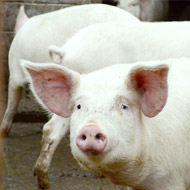Government promises to recognise animal sentience post-Brexit

Michael Gove has clarified that the vote against New Clause 30 was the rejection of a faulty amendment.
Environment secretary Michael Gove has confirmed that the sentience of animals will continue to be recognised and protections strengthened when Britain leaves the European Union.
In a ministerial statement, he writes: ‘It has been suggested that the vote last week on New Clause 30 of the EU Withdrawal Bill somehow signalled a weakening in the protection of animals - that is wrong. Voting against the amendment was not a vote against the idea that animals are sentient and feel pain - that is a misconception.
‘Ministers explained on the floor of the house that this Government’s policies on animal welfare are driven by our recognition that animals are indeed sentient beings and we are acting energetically to reduce the risk of harm to animals – whether on farms or in the wild. The vote against New Clause 30 was the rejection of a faulty amendment, which would not have achieved its stated aims of providing appropriate protection for animals.’
He continues: ‘The Prime Minister has made clear that we will strengthen our animal welfare rules. This government will ensure that any necessary changes required to UK law are made in a rigorous and comprehensive way to ensure animal sentience is recognised after we leave the EU. The Withdrawal Bill is not the right place to address this, however we are considering the right legislative vehicle.’
Ahead of the vote, Green Party MP Caroline Lucas submitted an amendment to Clause 30 to transfer the EU Protocol on animal sentience, into UK law, so that animals could continue to be recognised as sentient beings under domestic law. But the new clause was rejected with a majority of just 18 MPs, with 313 against and 295 in favour of the clause.
Critics, including the BVA, said that the action undermined the government’s promise that the UK would continue to be known for its high standards of animal health and welfare post-Brexit. The RSPCA pointed out that the term ‘animal sentience’ is not used in the Animal Welfare Act 2006, adding: “It is simply wrong for the government to claim that the Act protects animal sentience”.



 The RCVS has announced a new version of its 1CPD mobile app, with enhanced features for veterinary surgeons and veterinary nurses to record their continuing professional development.
The RCVS has announced a new version of its 1CPD mobile app, with enhanced features for veterinary surgeons and veterinary nurses to record their continuing professional development.